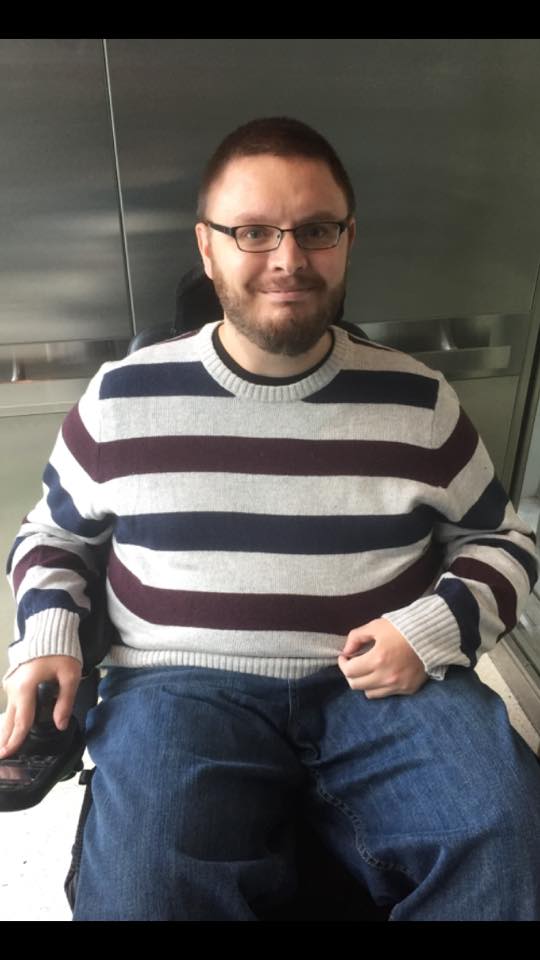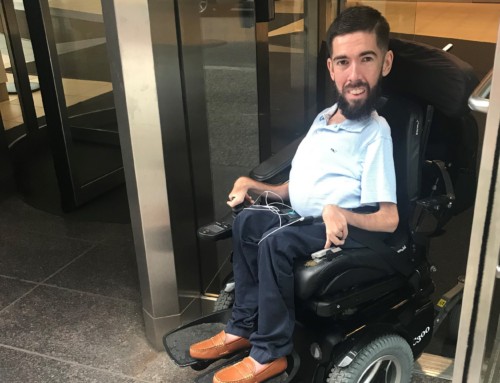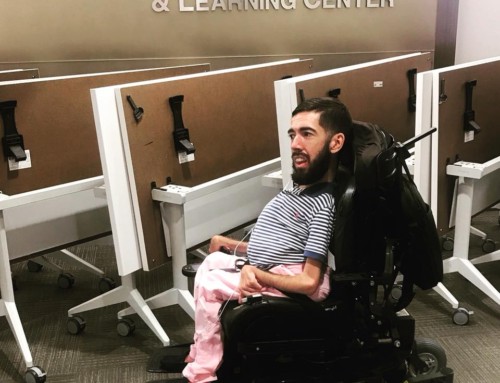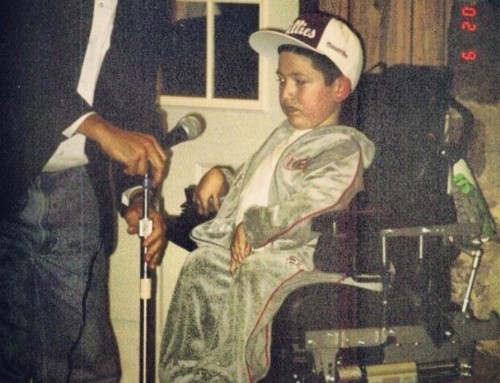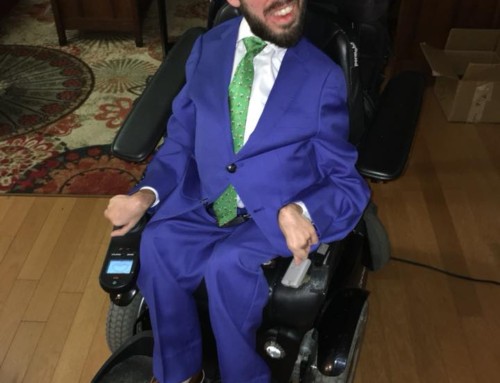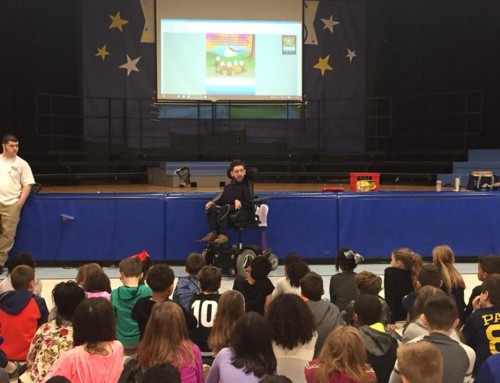I’m a lot of things. Son, brother, friend, and colleague are a few of these things. I work hard. I’ve traveled a good deal. I prefer small and intimate gatherings to wild parties but don’t get it twisted; I can throw down with the best of them. I love music, fine dining, and sports. I can tell you a thing or two about fantasy football. Cute girls and big butts are major weaknesses of mine. I’m also single, so I would encourage you to tell all your friends as soon as you’re done reading this piece. I have a master’s degree and I’m a mental health therapist. I’m ambitious and career-minded. I’ve been saving aggressively and am hoping to be a first-time homeowner within a year. I nearly forgot… I also have muscular dystrophy.
These days I tend to view my self as a guy who happens to have a neuromuscular disease, not someone who is defined by it. I’m a lot of things and having muscular dystrophy is just one small piece of the whole puzzle. I’m not disabled, but I am instead a person who happens to have a disability. I’d like to share with you about how my experience living with muscular dystrophy, and viewing it as only one element of my life, has guided my work as a mental health clinician and helped me to help my clients.
One of my strengths in my personal life is my ability to thrive despite shitty circumstances. Being someone who experiences a chronic illness I’ve learned to not get caught up in the pity party and accept that I have to do things differently to live the life I want to live. In direct correlation to this is a major belief that guides my work as a clinician; the idea that being effective at my craft partially depends on an ability to maximize my positive attributes in the work I do with my clients.
Here are some of my limitations. I can’t walk. I can’t get in or out of my bed independently. I can’t bathe or dress without assistance. Shit, I can’t even lift my arms – like at all anymore. I have a significant heart condition that is tied to my having muscular dystrophy. Every time I go out with friends, or on a date, to a new place I have to make sure the meeting place is accessible for my wheelchair. I can’t always just get up and drive somewhere whenever and wherever I please without asking a friend or family member to drive me in my van or schedule a ride (at least 24-hours notice required) with AccessLink, the accessible public transportation company in New Jersey. This is far from an exhaustive directory of all that I can’t do but you get the gist. Fortunately, there are people and things in my life that can help me to overcome these limitations.
My wheelchair helps me to get around with ease, whether at work, dinner, a concert, bar, sporting event, or maybe even out on a date with a nice girl (with a big butt). There are coworkers who are more than happy to help me get situated on my lunch break or send a fax. I have friends, family, and home-care aids who can help with getting in/out of bed, keeping my beard fresh, bathing, and brushing my teeth. There are specialists and medications that keep my heart pumping like it should. Though the 24-hour notice thing can be a pain in a pinch I mostly have AccessLink scheduling down to a science and friends and family more than willing to drive me in my van. The people, medical professionals/medication, and technologies in my life are all things that have allowed me to be successful and thrive at all those things that have nothing to do with having muscular dystrophy. Moreover, the struggles of living with this disease have helped to cultivate and develop a sense of mental fortitude, resilience, and ability to not cry over spilled beer.
In my work I spend a lot of time working with clients who may have a specific mental health diagnosis or may be dealing with a situational stressor or combination of the two. My expectation that people should see me for more than someone who lives with a disability has encouraged me to see in the people I work with not just as a diagnosis or troubling situation, but an individual who is so much more than a given situation or something you read about in a book.
Though some clinicians are often unwilling to disclose personal experiences with their clients, I have found and been taught that when used sparingly with the specific purpose of being beneficial to a client it can be very helpful. My own experience with my acceptance of muscular dystrophy and my having to “do things differently” is a tale I keep in my pocket and occasionally share with my clients. My hope is that I can help my clients to process troubling situations and develop skills they can use to manage a mental health issue that is not the focal point of their lives, but the last sentence of a paragraph about who they are and what they’re all about.
![[dis]ABLE Logo](https://disablethebrand.com/wp-content/uploads/2014/05/jimmy-logo-1-200.jpg)
